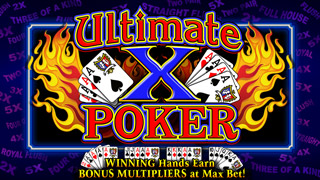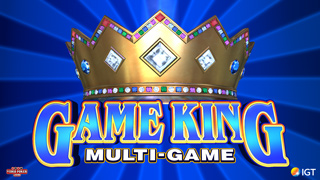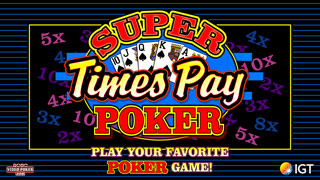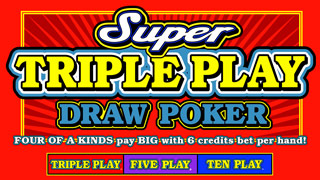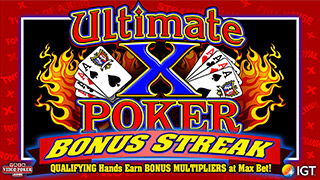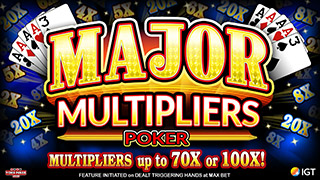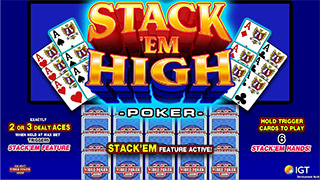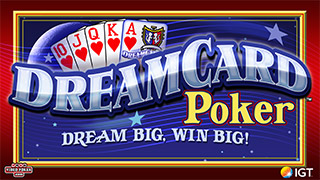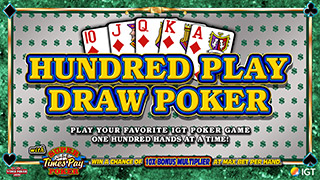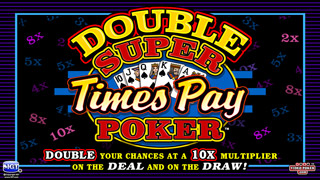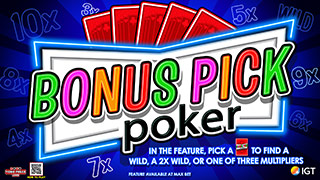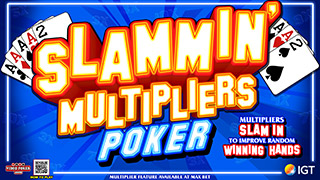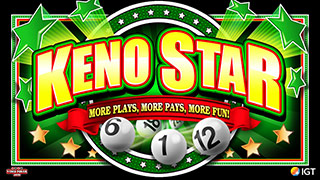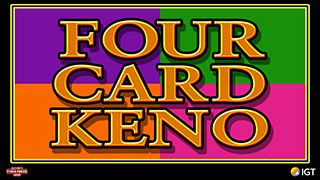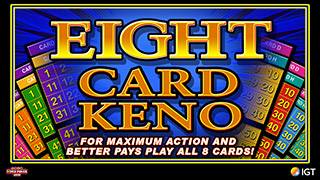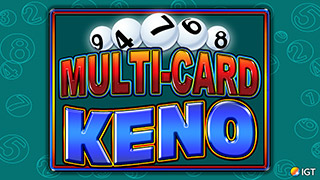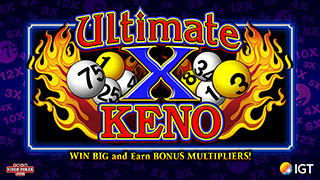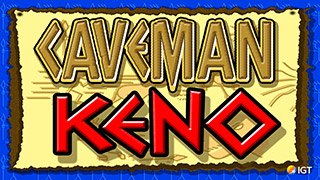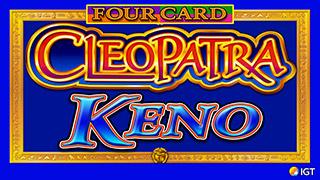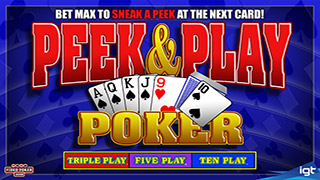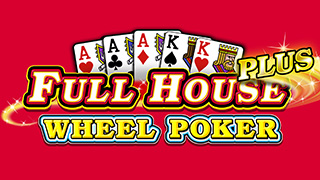What Would It Take???
-
backsider
- VP Veteran
- Posts: 578
- Joined: Sun May 08, 2011 11:35 pm
Re: What Would It Take???
I agree. I also applaud the effort, and concur that the poster who couldnt read your original post probably has little communications skills when he writes anything anywhere.
-
edog743
- Video Poker Master
- Posts: 1139
- Joined: Mon Nov 29, 2010 4:38 pm
Wow, you never fail to amaze me Backsider
-
BillyJoe
- Video Poker Master
- Posts: 3198
- Joined: Sat Aug 23, 2008 2:00 pm
I think dealt hands is a good place to start. We need to eliminate the effects of personal strategy. I see several ways to do this.
1. Go off dealt paying hands as a first step.
2. Also record 1 card draws like 4FL, 2-Pair, 4 to the straight etc...
3. Then compare made five-card hands like Full House that one gets drawing to 2-Pair. (Not all your Full Houses, only the ones you get drawing 1)
In this manner it wouldn't matter how people played or what strategy they used. Frequencies would remain constant.
Does everyone agree?
I feel, Frank, that you are 'leaning' toward lower-volatility games, like JOB or BP, with this approach. If the objective is to determine randomness or not, I would think that the frequency of the higher value hands, like quads, SFs and RFs, would better demonstrate this. If there was a reason to NOT be random, I would think that it would be in this area, especially for higher-volatility games like DDB and TDB. In other words, I could envision a program being completely random in the lower-paying area, but restricting randomness when it comes to a higher paying hand. So with your approach, you may think that you have demonstrated randomness, when in fact, the higher possible payout hands are biased for the casino, occurring less often than randomness may dictate, maybe even not at all.
1. Go off dealt paying hands as a first step.
2. Also record 1 card draws like 4FL, 2-Pair, 4 to the straight etc...
3. Then compare made five-card hands like Full House that one gets drawing to 2-Pair. (Not all your Full Houses, only the ones you get drawing 1)
In this manner it wouldn't matter how people played or what strategy they used. Frequencies would remain constant.
Does everyone agree?
I feel, Frank, that you are 'leaning' toward lower-volatility games, like JOB or BP, with this approach. If the objective is to determine randomness or not, I would think that the frequency of the higher value hands, like quads, SFs and RFs, would better demonstrate this. If there was a reason to NOT be random, I would think that it would be in this area, especially for higher-volatility games like DDB and TDB. In other words, I could envision a program being completely random in the lower-paying area, but restricting randomness when it comes to a higher paying hand. So with your approach, you may think that you have demonstrated randomness, when in fact, the higher possible payout hands are biased for the casino, occurring less often than randomness may dictate, maybe even not at all.
-
Frank Kneeland
- VP Veteran
- Posts: 762
- Joined: Wed Feb 02, 2011 6:59 pm
I feel, Frank, that you are 'leaning' toward lower-volatility games, like JOB or BP, with this approach. If the objective is to determine randomness or not, I would think that the frequency of the higher value hands, like quads, SFs and RFs, would better demonstrate this. If there was a reason to NOT be random, I would think that it would be in this area, especially for higher-volatility games like DDB and TDB. In other words, I could envision a program being completely random in the lower-paying area, but restricting randomness when it comes to a higher paying hand. So with your approach, you may think that you have demonstrated randomness, when in fact, the higher possible payout hands are biased for the casino, occurring less often than randomness may dictate, maybe even not at all. If the method/utility fails to be unbiased I will have failed, because I am most assuredly not trying to prove anything. I would like to provide the tools for proof and if you can't use them as easily as I can then again that would be a failure!I'll try to incorporate your suggestions. The more the test focuses on infrequent hands the larger the sample that will be required for statistical significance, so there are trade offs.Perhaps, and since this will only be for people's personal use, there should be a long and short version? What do you think?Then people could pick the version they needed to discount mere chance and draw meaningful conclusions from their own results based on what they play and how. I was going for something more generic-one-size-fits-all, but perhaps that's impossible.Good contribution!~FK
-
BillyJoe
- Video Poker Master
- Posts: 3198
- Joined: Sat Aug 23, 2008 2:00 pm
[QUOTE=billyjoe]
I feel, Frank, that you are 'leaning' toward lower-volatility games, like JOB or BP, with this approach. If the objective is to determine randomness or not, I would think that the frequency of the higher value hands, like quads, SFs and RFs, would better demonstrate this. If there was a reason to NOT be random, I would think that it would be in this area, especially for higher-volatility games like DDB and TDB. In other words, I could envision a program being completely random in the lower-paying area, but restricting randomness when it comes to a higher paying hand. So with your approach, you may think that you have demonstrated randomness, when in fact, the higher possible payout hands are biased for the casino, occurring less often than randomness may dictate, maybe even not at all.
If the method/utility fails to be unbiased I will have failed, because I am most assuredly not trying to prove anything. I would like to provide the tools for proof and if you can't use them as easily as I can then again that would be a failure!
I'll try to incorporate your suggestions. The more the test focuses on infrequent hands the larger the sample that will be required for statistical significance, so there are trade offs.
Perhaps, and since this will only be for people's personal use, there should be a long and short version? What do you think?
Then people could pick the version they needed to discount mere chance and draw meaningful conclusions from their own results based on what they play and how. I was going for something more generic-one-size-fits-all, but perhaps that's impossible.
Good contribution!
~FK
[/QUOTE]
Your idea to have a 'long' version geared toward infrequent hands is a good one. Personally, I would use that version, even though it would take a larger sample, and, in my case, would not be gathered from any one machine or casino. I would still happily share my results, though.
I feel, Frank, that you are 'leaning' toward lower-volatility games, like JOB or BP, with this approach. If the objective is to determine randomness or not, I would think that the frequency of the higher value hands, like quads, SFs and RFs, would better demonstrate this. If there was a reason to NOT be random, I would think that it would be in this area, especially for higher-volatility games like DDB and TDB. In other words, I could envision a program being completely random in the lower-paying area, but restricting randomness when it comes to a higher paying hand. So with your approach, you may think that you have demonstrated randomness, when in fact, the higher possible payout hands are biased for the casino, occurring less often than randomness may dictate, maybe even not at all.
If the method/utility fails to be unbiased I will have failed, because I am most assuredly not trying to prove anything. I would like to provide the tools for proof and if you can't use them as easily as I can then again that would be a failure!
I'll try to incorporate your suggestions. The more the test focuses on infrequent hands the larger the sample that will be required for statistical significance, so there are trade offs.
Perhaps, and since this will only be for people's personal use, there should be a long and short version? What do you think?
Then people could pick the version they needed to discount mere chance and draw meaningful conclusions from their own results based on what they play and how. I was going for something more generic-one-size-fits-all, but perhaps that's impossible.
Good contribution!
~FK
[/QUOTE]
Your idea to have a 'long' version geared toward infrequent hands is a good one. Personally, I would use that version, even though it would take a larger sample, and, in my case, would not be gathered from any one machine or casino. I would still happily share my results, though.
-
Frank Kneeland
- VP Veteran
- Posts: 762
- Joined: Wed Feb 02, 2011 6:59 pm
Your idea to have a 'long' version geared toward infrequent hands is a good one. Personally, I would use that version, even though it would take a larger sample, and, in my case, would not be gathered from any one machine or casino. I would still happily share my results, though. OK you have made me realize something. I don't know what people like yourself are most worried about. I now know that you are worried about the frequency of infrequent hands, I'm assuming things like Aces with a Kicker and Royals.I need more info from others so that the test will be usable to all.I'd like to open the door for people to say what hands they are concerned about, or what non-random patterns they suspect.I AM NOT GOING TO COMMENT IN THIS THREAD ON THE VALIDITY OF THOSE CLAIMS IN THIS THREAD AND I ASK OTHERS TO REFRAIN AS WELL.So say what you like, all opinions welcome!We are trying to accumulate a list of things the method/utility can check for, if this doesn't address real people's real concerns the darned thing will be a waste of time.Please don't make this thread about whether or not people are right (or wrong). If someone states a concern they are being honest that it is a concern for them...and if it is a concern to someone it deserves to be given consideration in a utility for checking VP fairness.~FK
-
moneyla
- Forum Rookie
- Posts: 46
- Joined: Thu Jun 02, 2011 3:02 am
Frank, if I only went by my own personal records of play I would have to say that video poker is not random. Why do I say that? Because it took me more than 170,000 hands to hit my last royal when royals are supposed to hit about once in about 40,000 hands. Another reason: I missed one-card royal draws too many times and in excess of 47 hands. If I were to go by my records there's no way in hell that I could testify to a jury that I know for a fact that video poker is a random game. However, I have faith in the regulators and in the machine manufacturers that the games are random and that my personal results are what happens in a random game to a random player. If called to testify I would also have to say that I have seen players hit two royals at the same machine within an hour of each other, and that I know of players who have hit multiple royals in a year. Were they playing machines that were rigged in their favor? I think not. So what would you expect to accomplish by asking any player to keep a log of their own results in what can only be a tiny fraction of all of the video poker play that goes on? Are you setting a trap for those who will play along with you on this one? Do you have some sort of surprise waiting such as -- "well folks, this was a test of your own psychological biases towards this or that"?? Actually I am surprised at you. You know how RNGs work. You know about the randomness of RNGs and VP and you know darn well that no one, on their own, could devise any kind of a method to prove or disprove the randomness of the game. Geesh.
-
Frank Kneeland
- VP Veteran
- Posts: 762
- Joined: Wed Feb 02, 2011 6:59 pm
Duplicate Post deleted
-
moneyla
- Forum Rookie
- Posts: 46
- Joined: Thu Jun 02, 2011 3:02 am
You're a very smart guy Frank. You know damn well that random machines have random results. What else is there to prove? Okay, I'll play along. Give me a hundred million hands and I pretty much think we'll be close to a random distribution of results. But I wouldn't expect it to be a perfect distribution either. That's my contribution.
-
Frank Kneeland
- VP Veteran
- Posts: 762
- Joined: Wed Feb 02, 2011 6:59 pm
1. So what would you expect to accomplish by asking any player to keep a log of their own results in what can only be a tiny fraction of all of the video poker play that goes on? 2. Are you setting a trap for those who will play along with you on this one? Do you have some sort of surprise waiting such as -- "well folks, this was a test of your own psychological biases towards this or that"?? 3. Actually I am surprised at you. You know how RNGs work. You know about the randomness of RNGs and VP and you know darn well that no one, on their own, could devise any kind of a method to prove or disprove the randomness of the game.4. You're a very smart guy Frank. You know damn well that random machines have random results. What else is there to prove?1. Apparently you are still under a misapprehension. I NOT asking anyone to keep a log of their own results. Some people keep logs anyway and others seem very concerned about the fairness of machines. I'm trying to provide people with a home utility to help them keep records (here's the key part) FOR THEMSELVES.I am not interested in other people's results, just as I'm reasonably sure they are not interested in mine. And when this thing is all said and done, I'm going to post it for people to use. That is all. 2. Setting a trap? Seriously... No, no trap here. I have heard the phrase, "That proves nothing", one too many times on forums and I thought it was about time we at least tried to define "what would prove something". 3. As far as it being impossible for an individual to do it, I don't believe that for a second. I think with some fancy math we can get a high level of certainty with a reasonable and attainable number of samples. The math is going to have to be very fancy...4. How many times am I going to have to say, "It's not about what I think??? People worry about this stuff a lot, and very few of them know the math for testing randomness, plus it's hard and time consuming even if you know it. I'm going to save people a ton of time by pre-packaging the tools for testing. I'm not responsible for what they test or their conclusions.Now did you have something to contribute to this thread that could help us achieve our goal or were you just visiting to inform us of the futility of our endeavor?I think it's great that you think machines are random even though your personal results make you question it, and I really think it's great that you realize that you can't be sure of anything. What I'm trying to do is give people a method/utility that will reduce that level of uncertainty. Surely you are FOR being more certain. Here's a chart...Uncertain = BadKinda Certain = BetterVery Certain = BestAbsolutely Positive = Insane~FK



